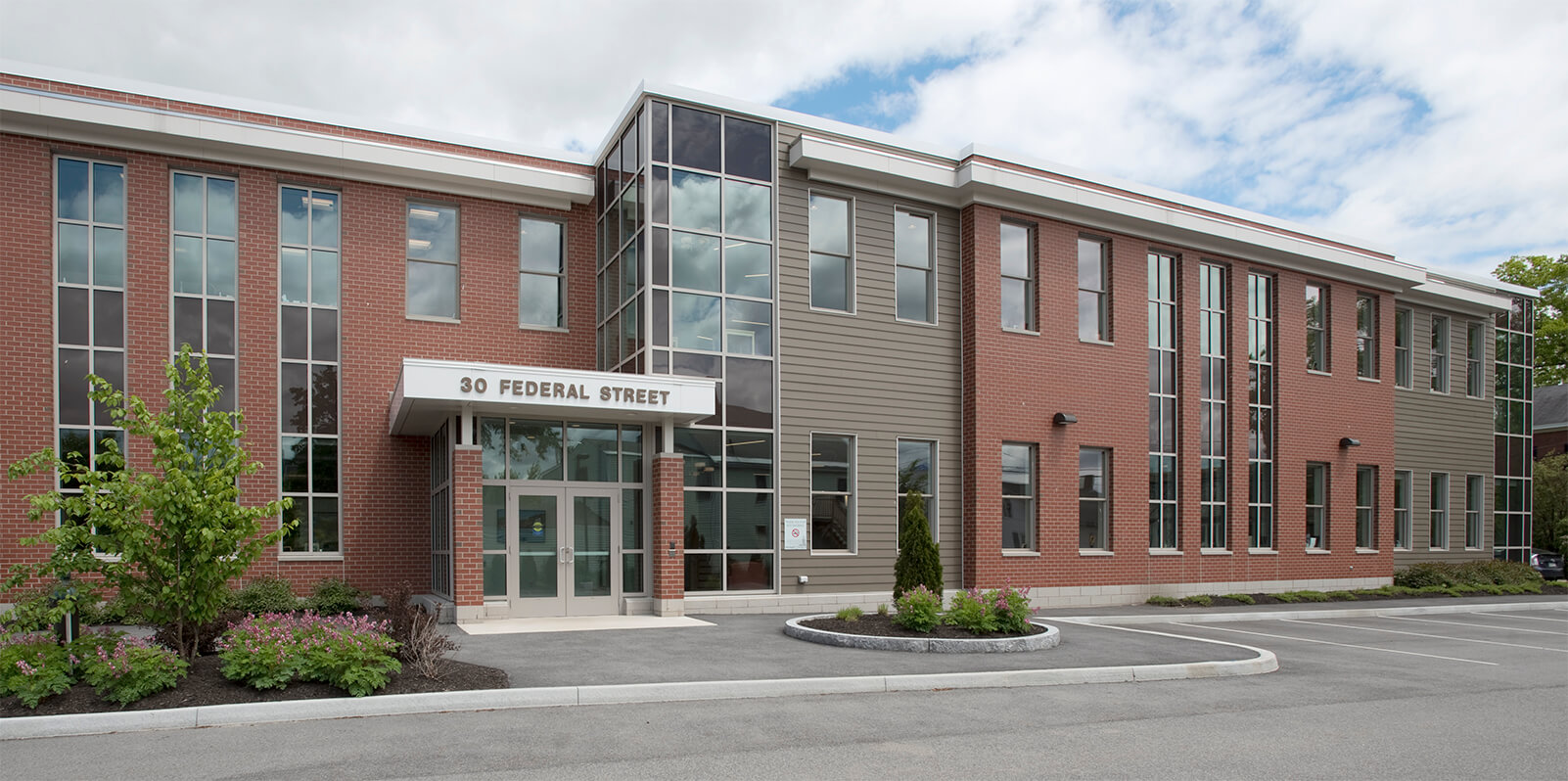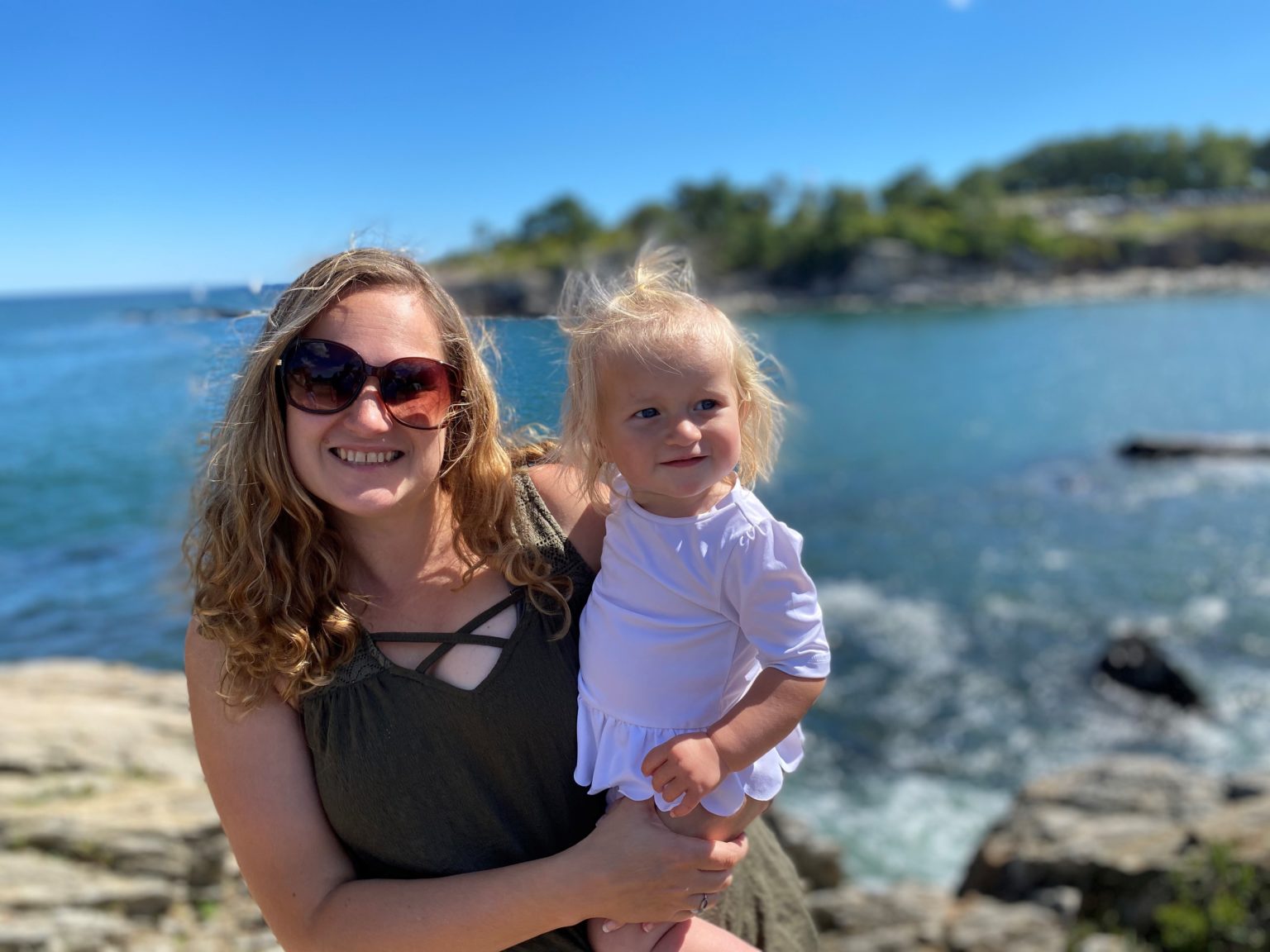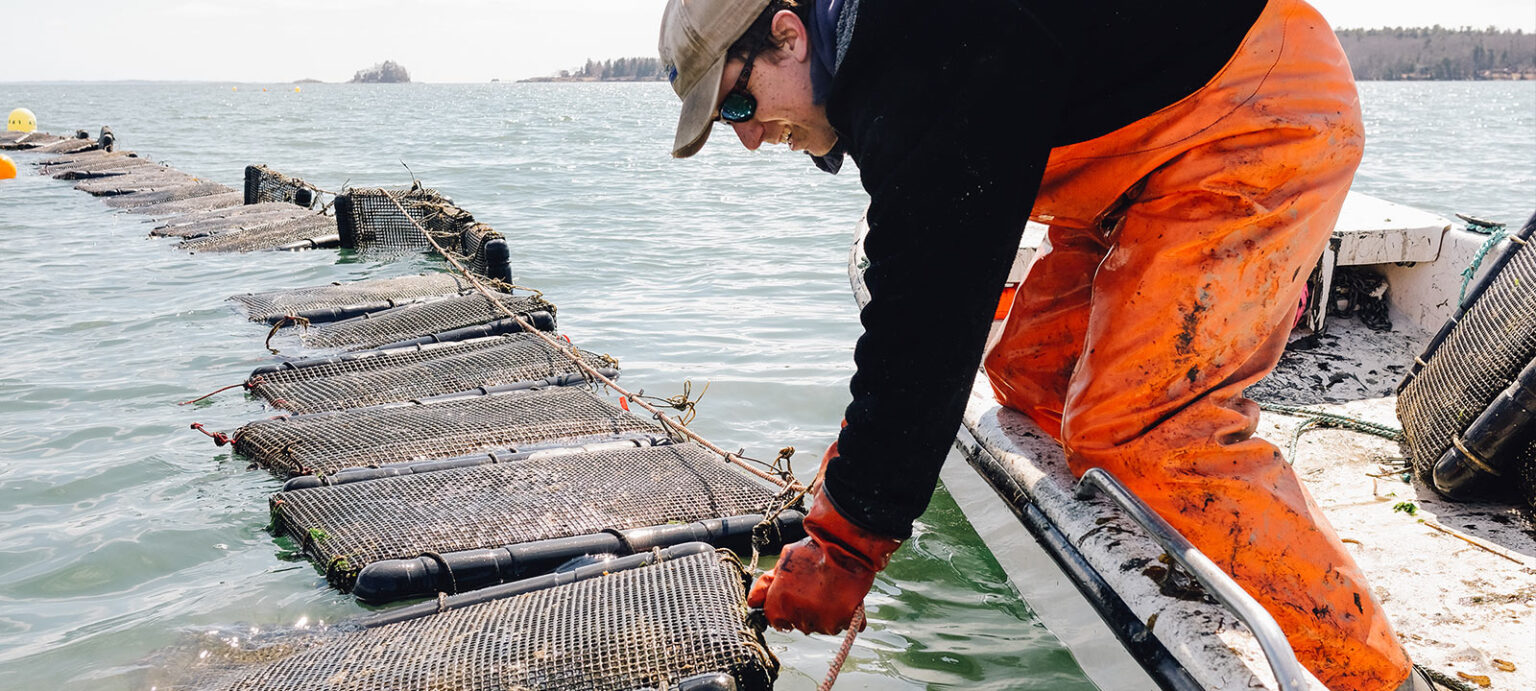December 14, 2022
CEI Releases 2022 Impact Report: Community Investments Support Climate Resilience, Good Jobs, and an Equitable Economy
[December 14, 2022] – Brunswick, Maine — Coastal Enterprises, Inc. (CEI), today reported its fiscal year 2022 impact, a look at how its combined economic development tools—business financing and advice, personal financial coaching and policy advocacy—helped strengthen local communities by growing good jobs and environmental resilience, particularly for people and places left behind by traditional financial systems.
KEY TAKEAWAYS
From October 1, 2021, to September 30, 2022, the CEI family of organizations deployed over $43.3 million to businesses, mostly in Maine, in the form of loans, microloans, equity and tax credit-motivated financing. This lending and investment activity contributed to the creation and preservation of at least 875 jobs, many of which are “good jobs” that pay a living wage, offer basic benefits and provide opportunities for advancement and wealth-building in alignment with CEI’s Good Jobs Framework.
The parent nonprofit, CEI, made a record 101 new loans and four equity investments, totaling over $26 million, to 99 small businesses and projects. 54% of small business loans were to women-owned businesses, and 16% were to immigrants and/or entrepreneurs of color. (See client highlights below.)
For those without significant savings, or friends and family who can invest, or a high credit score, or high-worth collateral it can be difficult to obtain even a small loan. These factors are frequently compounded by race, gender, immigration status or geography. CEI’s loans enabled entrepreneurs to start or grow their business, supporting the potential to shrink the wealth gap and move towards a more equitable economy.
“Every day, CEI and our peer community development financial institutions across the country use our understanding of the local business landscape coupled with community connections and financial resources to help entrepreneurial people bring their ideas to life – creating good jobs and increasing personal financial agency along the way.”
Betsy Biemann, CEI CEO
Fostering Equity
To enable more equitable access to capital, CEI launched a program to better serve borrowers with limited assets, approved over 40 “Wicked Fast” microloans and helped 32 people improve their credit scores. Those improved credit scores helped applicants secure $534,000 in CEI loans.
In addition to capital investments, CEI staff members provided one-on-one business advice or training to 3,132 people in Maine, including 1,596 women and femme/feminine-identifying genderqueer and non-binary individuals through the CEI Women’s Business Centers, 72 immigrants and refugees through CEI’s StartSmart program, 72 fisheries and aquaculture industry entrepreneurs and 1,607 entrepreneurs through Maine Small Business Development Centers hosted by CEI across Maine.
To help Mainers build financial assets and acumen, CEI provided an additional 1,069 people with homeownership counseling and financial education that helped them purchase homes, avoid foreclosures and build their savings, all steps to a more secure financial future.
Centering Job Quality
CEI knows that creating good jobs that provide a living wage, basic benefits and opportunities for advancement and wealth-building is key to reducing economic inequality, which is why CEI’s Workforce Solutions team partners with loan officers during the due diligence process to assess the nature of jobs being created. By establishing a relationship prior to a loan closing, CEI is able to partner with small business owners to identify specific, achievable steps to improve job quality that benefit both employees and the employer, from increasing starting wages as a way to reduce turnover, to finding creative solutions to support employee’s health care costs. CEI staff advised 91 companies on Good Jobs practices and was recognized for its leadership in job quality improvement strategies with grants from the U.S. Department of Health and Human Services, Office of Community Services and two national foundations.
CEI subsidiary CEI Ventures has amplified the importance of Good Jobs in high growth companies in New England as it held a final close on “The Good Jobs Fund.” This fifth venture capital fund raised $21.4 million from 46 accredited investors for investment in businesses that demonstrate a commitment to putting their people first in addition to delivering outstanding financial results. During the fiscal year, CEI Ventures completed eleven equity investments totaling $3.7 million. In an industry where only 2% of venture-funding goes to female entrepreneurs, 80% of CEI Ventures’ new investments went to companies that were founded or co-founded by women.
Increasing Climate Resilience
CEI continued to lead a just climate transition by calculating and disclosing the carbon impact of its loan portfolio. It also financed environmentally sustainable technologies like solar and tidal energy generation and supported resilience-building along Maine’s coast through investments to keep the working waterfront accessible, strengthen out-of-state distribution channels and train aspiring aquaculturists in tested growing techniques. 22% of loans went to businesses that have environmentally sustainable products or services as their core business activity, while 42% of loans went to businesses with carbon-reducing features, such as increased energy efficiency or pollution/waste reduction.
Building Better Systems
Beyond helping people and businesses on a one-by-one basis, CEI aimed to make broader structural changes by advocating for pragmatic state and federal policies that can expand access to broadband services, renewable energy, child care and seed capital for small businesses. This included testifying on 30 separate bills before the 130th Maine state legislature and serving on the Permanent Commission on the Status of Racial, Indigenous and Tribal Populations.
CEI also used its network and industry expertise to help the state channel ARPA grant funds to support and grow Maine’s farms, food processing and child care infrastructure, as well as helping homeowners stay in their homes.
“Even as individuals work to better their lives and their communities, it is important to take action that makes changes at the systemic level to build a just, vibrant and climate-resilient economy that enables all of us to thrive, particularly people in underserved communities. Not just now, but for generations to come. Maine is a model for shifting to a more equitable economy that others can follow.”
Keith Bisson, CEI President
Deepening Impact Nationally
CEI subsidiaries deepened the organization’s impact in Maine and extended it to rural regions and gateway cities across the U.S.:
- 30 Federal Street Investments, CEI’s state historic tax credit financing subsidiary, invested in seven new historic redevelopment projects, including projects in Bangor, Fairfield, Bath, Portland and Biddeford. Six of the seven projects include some affordable housing (157 units in total); two of the seven focused on affordable apartments for elders (70 units in total). Total investment for the year was $7.7 million across active projects.
- CEI-Boulos Capital Management placed $1.1 million in Opportunity Zone equity investments in a zero-energy historic redevelopment in Baltimore’s Black Arts District and closed a new $10 million fund with NBT Bank to invest in CRA investment areas in upstate New York. The company also celebrated multiple milestones at its portfolio investments, including the opening of a grocery store in Sharswood, the first grocery store to operate in the North Philadelphia neighborhood in fifty years.
- CEI Capital is managing a portfolio of $135 million in New Markets Tax Credit investments in seven companies in rural and gateway cities communities across the country and a portfolio of $1.5 million in one Maine New Market Capital Investment Program project within the state. They recently received a new $55 million allocation of New Markets Tax Credits to invest in rural communities across the country.
Since CEI’s founding in 1977, the CEI family of organizations has invested $1.53 billion in 3,222 businesses and projects that are changing Maine’s employment landscape and creating positive economic ripple effects in rural regions throughout the U.S.
About CEI
Coastal Enterprises, Inc. (CEI) works to build a just, vibrant and climate-resilient future for people and communities in Maine and rural regions by integrating finance, business expertise and policy solutions in ways that make the economy work more equitably. More at www.ceimaine.org.
Client Highlights

INVESTING IN QUALITY CHILD CARE BUSINESSES
In Ellsworth, Thania Hernandez opened Mis Primeros Pasos – a bilingual child care center at Families First Community Center, a non-profit transitional housing facility working to break the cycle of homelessness for families with children in Hancock County. Mis Primeros Pasos provides care for residents and families living nearby, integrating private pay children and those income eligible for state subsidy. After earning her degree in Elementary Education from the University of Maine at Machias, Thania prepared to open her business by participating in CEI’s Child Care Business Lab and working at Rayitos de Sol, another bilingual child care headed by a Child Care Business Lab alumna. While traditional financial institutions sometimes struggle to finance child care businesses because of the thin margins and unusual business collateral, including cribs, developmentally appropriate toys and playground equipment, CEI is committed to providing capital and long-term business advising to child care providers across the state.
LEWISTON: Owner/chef immigrant Obaidullah Mohamed used his 20 years of restaurant experience in Afghanistan and Russia to launch Crown Fried Chicken & Kebab, a Halal take-out spot that has become popular with Bates College students and the local immigrant community alike. CEI supported his dream with financing and business advising through its immigrant & refugee focused StartSmart program that helped him purchase, renovate and license his restaurant.
PORTLAND: The opening of a new Women’s Business Center focused on supporting diverse entrepreneurs has provided women like Carolina Tanquay, a 30-year Maine resident originally from Santiago, Chile, with a community of like-minded business owners and the technical resources to grow her gift shop focused on Maine-made goods.
BRUNSWICK: CEI’s Venture Capital subsidiary, CEI Ventures, invested a portion of its Good Jobs Fund in Circa, a technology platform co-founded by female founder Leslie Hyman. Circa improves resident outcomes and increases accessibility by giving residents tools to improve their rent and arrears payments, and their property managers better NOI and relations. As part of the investment, Circa management is partnering closely with CEI’s Workforce Solutions team to implement practices that enhance the quality of their jobs while improving business performance.
BELFAST: Former lobster boat sternman Andrew Peters is farming sustainably grown sea scallops at Vertical Bay using Japanese “ear-hanging” methods and machinery CEI introduced to Maine fishermen, helping him continue to pursue his dream of building a living on the ocean in the face of changing waters.
ELLSWORTH: Military veteran John Fuhrman mixes Maine ingredients into delicious dry rubs for Bub ‘n Mutha’s, with a goal of expanding from a one-man cottage-industry to a company that hires young veterans and helps keep Winter Harbor, largely dependent on seasonal tourism and fishing, vibrant year-round. Fuhrman worked with an advisor from the Maine SBDC at CEI on his business plan to grow his web sales and retail locations and was the winner of the second annual Downeast Business Bootcamp Pitch Off co-hosted by the Maine SBDC and the CEI Women’s Business Center.
INCLUSIVE EMPLOYMENT IN MAINE’S FOOD SYSTEM
In Somerset County, Heather Kerner combined her experience as an occupational therapist, her connections to Maine’s local grain supply chain and support from the CEI’s Women Business Center to create The Good Crust, a pizza-dough manufacturer that practices an inclusive employment model that creates jobs for Mainers with unique needs, including those with cerebral palsy, autism, brain injury, and addiction recovery. The business grew quickly and soon she was ready to expand to a larger location in Canaan. Kerner needed loan funds to purchase the building and equipment but as a new business, with only a short period of commercial operations and a niche product with high equipment costs, banks were hesitant to take the risk. Because CEI worked closely with Heather from the start, knew her expertise and the local market for her product well, her loan officer saw the “risks” as opportunities.



